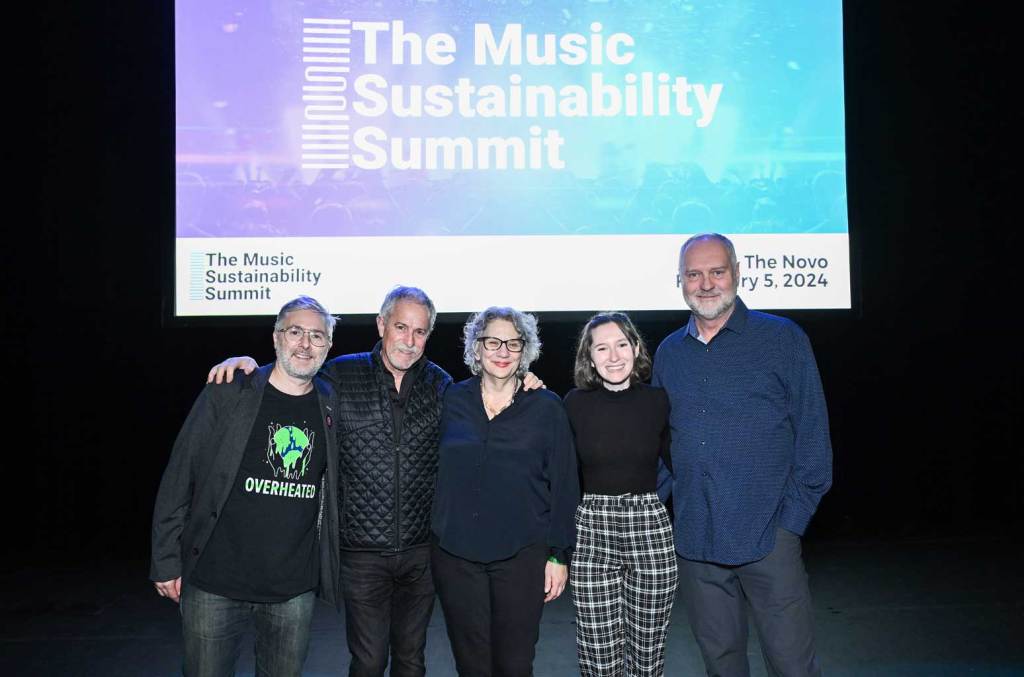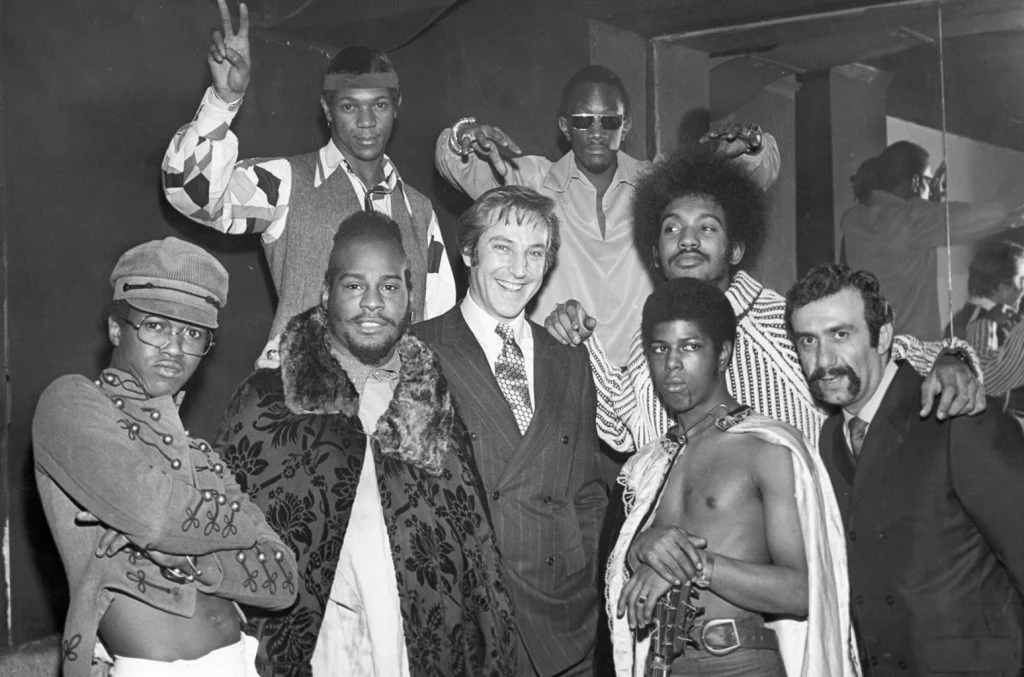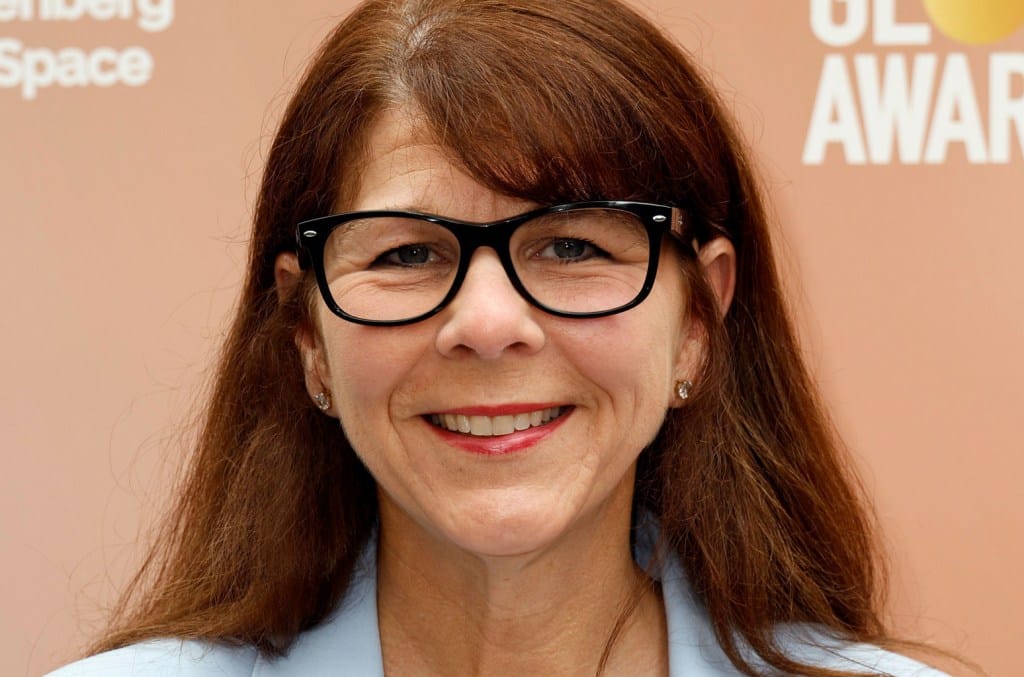Business
Page: 105
The second annual Music Sustainability Summit has announced the speakers and agenda for the event that’s set to take place next month in Los Angeles. Topics to be discussed during the day-long gathering include: Live Music Emissions in the U.K. and U.S. Behind the Tracks: Music Production, Delivery, and Consumption Beyond Backlash: The High Stakes […]
Warner Music Group (WMG) and Boston-based private equity firm Bain Capital are in advanced talks to form a joint venture worth around $1 billion to acquire music catalogs, according to three sources with knowledge of the talks.
Led by an equity investment from Bain, the joint venture will enable WMG to write bigger checks while spending less of its own money to acquire the catalogs it wants most.
A representative for WMG declined to comment, and a representative for Bain did not respond to a request for comment.
High interest rates and intense competition to own the rights to music from bands like the Red Hot Chili Peppers is leading major music companies to partner with outside investors to bolster their bids and assuage shareholders who may be put off by the price of a prized catalog.
Trending on Billboard
Some of the biggest catalog sales of all time occurred last year, with Sony Music acquiring Queen’s catalog and other rights for $1.27 billion. Earlier in 2024, Sony also acquired a stake in Michael Jackson‘s catalog for $600 million.
In many cases, music companies are looking to buy out an artist with whom they’ve worked for years and whose catalog they already partially own — like Sony Music did in 2022 when it bought Bob Dylan‘s master recordings. Owning more of the music’s intellectual property not only allows for more control over how the songs are used and licensed in the future, it prevents potentially embarrassing break-ups between record labels and their superstars.
The bidding wars have grown particularly pitched for master recording rights, which are more valuable today because streaming has extended the period that a song remains popular by several years, according to entertainment banking sources. Before streaming provided listeners with easy access to the entire universe of popular music and kept songs in regular rotation through playlisting, the revenue generated by a hit song’s master recording would fall off precipitously after its hype period waned.
A growing number of successful artists are also leaving major music companies to release music independently, have grown entire careers independently or have negotiated more favorable contracts with their major label partners, giving them more ownership of their master royalties. It all has some investors worried that the total addressable market of master royalties will grow more slowly in the future than in prior decades.
In early 2024, Universal Music Group (UMG) invested roughly $240 million to partner with Chord Music, a catalog investment company majority-owned by Dundee Partners, to give it similar flexibility to acquire catalogs off of its balance sheet and with financial help. The agreement gave UMG the administration and distribution business for the 60,000 music copyrights owned in Chord, and, in exchange for throwing its power as the world’s largest music company behind those assets to make them make more money, Dundee Partners became UMG’s long-term co-investment partner.
Sony Music has also partnered with institutional investors to help finance acquisitions, including Apollo, and WMG has explored investing in catalogs through outside vehicles as an early investor in both Tempo Music Group and Influence Media.
One of the financial engineers involved in structuring UMG’s deal with Chord was Michael Ryan-Southern. At the time, Ryan-Southern led Goldman Sachs’ investment banking team focused on the music industry. WMG hired Ryan-Southern last summer to serve as its head of corporate and business development, overseeing mergers and acquisitions.
Ryan-Southern’s team was key toWMG’s acquisition of Tempo Music, a $450 million deal announced on Feb. 6 that gives Warner the rights to songs by Wiz Khalifa, Florida Georgia Line and Brett James.
WMG’s ties to Bain Capital date back to 2004 when Bain was part of the investor group — also including Thomas H. Lee Partners, Edgar Bronfman, Jr. and Providence Equity Partners — to buy WMG for what was then $2.6 billion cash.
George Clinton is suing his one-time business partner, Armen Boladian, over allegations that he fraudulently obtained the rights to the vast majority of the funk pioneer’s music catalog.
In a lawsuit filed Tuesday (March 11) in Florida federal court, attorneys for Clinton accused Boladian and his Bridgeport Music of “abusive, deceptive, and fraudulent practices” that were aimed at stealing from Clinton and “capitalizing on his success.”
“I’m fighting for my life’s work and to ensure future generations of artists are treated fairly,” Clinton said in a statement released by his lawyers. “When you’re young and just starting out in the music industry, it’s easy for others to take advantage of you.”
Trending on Billboard
The sweeping complaint accuses Boladian of carrying out a “decades long scheme to defraud Clinton,” including improperly using the star’s signature to grant himself rights to Clinton’s music and fabricating key legal agreements. The conduct has left Boladian and Bridgeport in control of 90 percent of Clinton’s catalog, the lawsuit says.
“For decades, George Clinton has shaped the sound of music and inspired generations of artists, yet he has been systematically deprived of the rights and royalties he rightfully deserves,” said Ben Crump, an attorney who is representing Clinton in the lawsuit.
In a statement to Billboard, Boladian’s attorney Richard Busch sharply denied the allegations: “This is just the latest in a series of lawsuits that Mr. Clinton has filed against Armen Boladian and his companies over the last 30 years raising the same exact issues. He has lost each and every time, including in the very courthouse in which he has filed this latest lawsuit. We will obviously therefore be moving to dismiss this lawsuit and will be seeking sanctions.”
Notably, in addition to seeking damages, the lawsuit is seeking an injunction to stop Boladian from shopping Clinton’s catalog to potential buyers — something the star’s lawyers suggest he’s actively doing: “Plaintiff has reason to believe that Boladian is soliciting the sale of assets including the rights and ownership interests in Plaintiff catalog.”
Bridgeport Music is well-known in the world of music law. The company has filed huge numbers of copyright infringement lawsuits against major artists who allegedly sampled songs by Clinton and others, including one case against Jay-Z and another case over an N.W.A. song that resulted in an influential decision on sampling.
In Tuesday’s lawsuit, Clinton’s attorneys cited that litigation campaign in his allegations against Boladian, calling his foe a “copyright troll” who uses lawsuits to exploit songs “he looted the rights to.”
“Interestingly, Clinton, the rightful owner of said catalog, has never been included as a plaintiff in these lawsuits nor has he received any portion of the millions secured by Boladian,” Clinton’s attorneys wrote.
Read the entire lawsuit here:
Heavy metal legends Megadeth signed a deal with Frontiers Label Group’s new imprint, BLKIIBLK, to release the band’s forthcoming album globally. The deal was struck via frontman Dave Mustaine‘s Tradecraft imprint.
Global avant-pop star Sevdaliza signed a global deal with Create Music Group, which will release her upcoming music via its indie label, Broke, co-founded and led by Andre Benz and Brandon De Oliveira. The imprint put out Sevdaliza’s latest single, “Maria Magdalena,” on Friday (March 7). The first release under the deal was Sevdaliza and Karol G’s “No Me Cansare,” which came out in October and has more than 70 million streams globally, according to a press release.
Kristin Chenoweth signed with UTA for representation in all areas. Best known for originating the role of Glinda the Good Witch in Wicked and for starring in numerous films and TV shows, the Emmy- and Tony-winning singer and actress is set to debut in the forthcoming Broadway musical The Queen of Versailles in the 2025-26 season.
Trending on Billboard
Guitarist and songwriter Don Felder, best known for his former role as lead guitarist of the Eagles, signed with Frontiers Music Srl, which will release his debut solo album later this year. Felder is managed by Charlie Brusco at Red Light.
Seattle-formed alternative rock band Minus the Bear, which broke up in 2018 before reuniting, signed with Jordyn Reese at Do Better for Artists for management. The band’s label is Suicide Squeeze Records.
Mexican-Dominican songwriter Ambar Lucid signed with Nice Life Recording Company. The label released Lucid’s new song “There Goes My Baby” on Friday (March 7).
Country Latin artist Sammy Arriaga partnered with Chris Ruediger‘s Walk Off Entertainment for the release of his upcoming music, including new single “Left My Heart in Texas,” out Friday (March 14). The deal was struck via Arriaga’s own label, Dead Rose Records.
Boutique music publisher Maison Arts launched a full-service record label, Maison Records, with a roster that includes Swedish multi-instrumentalist Arc De Soleil, writer/producers-turned-artists Social House, Cuban electronic duo Pauza, London-based electronic duo Roi Turbo, DJ Devault, and U.K.-based Afrobeats artist Not3s. Maison Records’ executive team includes Maya Michaelian as head of marketing and A&Rs Livia Piomelli and Arielle Tindel. The Orchard will provide global distribution for the label.
Curb Records signed singer-songwriter and multi-instrumentalist Matthews to its roster. Matthews first found recognition as a lead vocalist and writer for Elevation Worship. He co-wrote and performed on several of the band’s songs, including “Here as in Heaven,” “Resurrecting” and “Echo,” and the group’s Here as In Heaven album. – Jessica Nicholson
Christian hip-hop duo West Indies signed with Rodney “Darkchild” Jerkins‘ Alienz Alive label. The duo’s self-titled debut project was released on Feb. 28.
Americana artist Connor Daly signed with Burning Ground Entertainment for management. Daly released his debut album, Colors Fade, in July. Daly, who counts Jason Isbell, Zach Bryan and Ed Sheeran as inspirations, recently released a new single, “Curtains Never Close.” Burning Ground Entertainment also represents artists including Mic Drop, The Pretty Wild, and Tayiha. – Jessica Nicholson
HipHopWired Featured Video
TSMC, the world’s leading chip manufacturer, has approached several United States-based chip designers for a new joint venture to oversee operations for Intel factories, according to a new report. If the deal goes through, TSMC, which is based in Taiwan, will take over half of Intel’s foundry division, reportedly at the request of President Donald Trump’s administration.
Reuters revealed that, via sources, TSMC has approached Nvidia, AMD, Broadcom, and Qualcomm about a potential joint venture to run half of Intel’s foundry division, which creates a variety of chips made for specific customer needs. Intel’s stock price, which has been nosediving since last year, saw a spike in the market on Wednesday (March 12) after the Reuters report went wide.
In the ongoing tech wars surrounding the rapid development of AI tools and the items needed to run the massive computing demands of said programs, Intel’s stake in the chipmaking game was widely report to be slipping and reports point to the fact other chipmakers have far outpaced the one-time giant of the space, especially Nvidia in this case.
The outlet also learned via sources that the Trump administration formally requested that TSMC lend its expertise to rescue Intel from floundering further as President Donald Trump and his “America First” agenda continue to take shape across the nation. The prevailing thought is that this would be a beneficial partnership, albeit a reluctant one, as Trump has been clear in wanting the United States to be a leader in manufacturing its tech goods and passing premiums on other countries via tariffs and the like.
The deal would give TSMC a 50% stake and no more than that, but it would need to be approved by President Trump. The outlet adds that, via a quartet of sources, the deal would face some requisite challenges as TSMC has vastly different operating rules than Intel.
—
Photo: VCG / Getty
HipHopWired Featured Video
TSMC, the world’s leading chip manufacturer, has approached several United States-based chip designers for a new joint venture to oversee operations for Intel factories, according to a new report. If the deal goes through, TSMC, which is based in Taiwan, will take over half of Intel’s foundry division, reportedly at the request of President Donald Trump’s administration.
Reuters revealed that, via sources, TSMC has approached Nvidia, AMD, Broadcom, and Qualcomm about a potential joint venture to run half of Intel’s foundry division, which creates a variety of chips made for specific customer needs. Intel’s stock price, which has been nosediving since last year, saw a spike in the market on Wednesday (March 12) after the Reuters report went wide.
In the ongoing tech wars surrounding the rapid development of AI tools and the items needed to run the massive computing demands of said programs, Intel’s stake in the chipmaking game was widely report to be slipping and reports point to the fact other chipmakers have far outpaced the one-time giant of the space, especially Nvidia in this case.
The outlet also learned via sources that the Trump administration formally requested that TSMC lend its expertise to rescue Intel from floundering further as President Donald Trump and his “America First” agenda continue to take shape across the nation. The prevailing thought is that this would be a beneficial partnership, albeit a reluctant one, as Trump has been clear in wanting the United States to be a leader in manufacturing its tech goods and passing premiums on other countries via tariffs and the like.
The deal would give TSMC a 50% stake and no more than that, but it would need to be approved by President Trump. The outlet adds that, via a quartet of sources, the deal would face some requisite challenges as TSMC has vastly different operating rules than Intel.
—
Photo: VCG / Getty
Venezuelan singer-songwriter Joaquina has signed a global publishing deal with Warner Chappell Music, the company tells Billboard. This marks her first worldwide administration agreement since her best new artist win at the Latin Grammys in 2023, which made her the youngest act to win that category at age 19. “I believe a huge part of […]
A federal judge has dismissed a defamation lawsuit filed by R. Kelly’s former assistant against Netflix and Lifetime over how she was portrayed in the documentary “Surviving R. Kelly,” ruling that the networks are protected by the First Amendment.
The lawsuit from Diana Copeland, who says she worked for Kelly for more than a decade, claimed that the doc series “depicts her in a sinister and defamatory light” – including falsely suggesting that she had helped the now-convicted singer prey on young women.
But in a ruling Tuesday, Judge Stephanos Bibas said Copeland had failed to clear the “high bar” for filing libel cases over newsworthy subjects: “The First Amendment demands ‘adequate breathing space’ for the free flow of ideas, especially about public figures on matters of public controversy.”
Trending on Billboard
The judge dismissed the lawsuit, but gave Copeland a chance to refile an updated version of her lawsuit. In a statement to Billboard, her attorney said she would successfully do so: “In this new streaming world, platforms like Netflix and documentarians need to be held accountable for any damages caused to people by slander in their content.”
An attorney for Lifetime and Netflix did not immediately return a request for comment.
Released in early 2019 as a six-part documentary series, “Surviving R. Kelly” helped push the longstanding abuse allegations against Kelly back into the public eye. Later that same year, the singer was indicted by federal prosecutors on a slew of criminal charges, eventually resulting in convictions on racketeering, sex trafficking and child pornography and decades-long prison sentences.
Copeland sued last year, with her attorneys claiming that episodes of the Lifetime documentary, which was later added to Netflix’s catalog, “paint Ms. Copeland as Mr. Kelly’s co-conspirator and accomplice in victimizing children and young women.”
But in Tuesday’s decision dismissing those claims, Judge Bibas ruled that Copeland was a so-called public figure — a status that makes it very hard to win a defamation lawsuit.
Under landmark U.S. Supreme Court rulings, someone like Copeland must show that Lifetime acted with “actual malice,” meaning the network either knew its claims were false or acted with reckless disregard for the truth. That difficult-to-meet standard is designed to prevent government officials, business execs and other powerful people from abusing libel suits to stifle free speech.
Copeland had argued that she was no celebrity and simply wanted to “lead a private life” despite her work for Kelly. But Judge Bibas pointed out that she had appeared on Good Morning America to discuss the allegations and defend her conduct: “By going on national TV to discuss Kelly, Copeland voluntarily injected herself into the public discourse [and] invited public attention, comment, and criticism.”
As a public figure, the judge said Copeland’s case would only succeed if she could show “actual malice” – and he said had not done so in her court filings.
“The actual-malice standard shields publishers from liability for mistakes, while still preserving defamation remedies where the publisher knew that he was publishing falsehoods or deliberately ignored the truth,” the judge wrote. “Copeland fails to clear that high bar. The complaint offers only conclusions and speculation of ill will, not allegations of actual malice.”
For similar reasons, the judge also tossed out other allegations of the case, including that the documentary inflicted emotional distress and misappropriated her name and likeness. But the entire ruling came “without prejudice,” meaning Copeland can refile her case with changes in an effort to fix the problems Judge Bibas identified: “Perhaps Copeland can cure these defects.”
The landscape for top music executives remains overwhelmingly white and male, according to a new report by USC’s Annenberg Inclusion Initiative, which notes that representation at the highest levels of the music industry have remained minimal despite declarations of diversity, equity and inclusion (DEI) in by major music companies in 2020 — with many of them performing worse today than when data was last collected in 2021.
On Wednesday (March 12), Dr. Stacy L. Smith and the Annenberg Inclusion Initiative released their second Inclusion in the Music Business report — in partnership with Believe and Tunecore — that focuses on the gender and racial/ethnic identity of music executives, with data pulled from a survey of 2,793 executives across 106 music companies.
In one key finding, 86.8% of top executives (i.e. CEOs and presidents) at a smaller subset of 37 major and independent music companies were men, while 92.1% were white. All three non-white executives, two of whom were women of color, ran independent companies.
Trending on Billboard
“Much has been made of the ‘Year of the Woman’ in music, highlighting the work of artists like Taylor Swift, Beyoncé, Chappell Roan or Sabrina Carpenter,” the report reads. “While the music stage may be perceived as increasingly open to women artists, the executive ranks have maintained the status quo. Women fill fewer than 20% of top leadership positions and are still rarely part of senior leadership teams at top companies.”
“In comparison to 2021, there was no increase in the percentage of senior executives who were women, people of color, or women of color in these roles — in fact, the percentage of underrepresented top executives decreased,” the report adds.
In focusing on just six major music companies (Sony Music Entertainment, Universal Music Group, Warner Music Group, Spotify, iHeartMedia and SiriusXM), the report discovered that just a third of all senior management executives at those companies were women, while 16.7% were from an underrepresented racial/ethnic group. In total, there were just eight women of color working in those roles, amounting to 10.3%.
In a broader analysis of senior leaders across the 106 companies — boiled down to 77 companies when taking into account subsidiaries — men held 84.4% of CEO/president roles while women held just 15.6%. The majority of those top executives (82.2%) were white, while just 17.8% were from underrepresented groups. Women of color held just 4.4% of these top roles.
According to the report, among all companies surveyed, the presence of women executives falls significantly as the level of responsibility increases. Across the executive hierarchy categories of chief/president, executive vp/senior vp/GM and vp/head, women are most likely to hold positions at the vp/head level at 43.9%. This percentage drops to 38.1% of executive vp/senior vp/GM roles, while the percentage falls further, to 25.6%, at the chief/president position.
A similar pattern is found for underrepresented executives, who make up 25.9% of vp/head roles but only 19.7% and 21% of executive vp/senior vp/GM and chief/president roles, respectively. Only 10% of all executives in these categories were women of color.
The report suggests that the lack of female representation in higher roles could be due to two primary consequences of gendered leadership beliefs. “The first is that [women] may not be projected into leadership positions because they are not perceived to have the traditionally masculine traits associated with leadership,” the report reads. “The second is that when women do behave in ways that violate their gender role, perhaps by exhibiting leader-like behavior, they are punished. Thus women may be excluded from promotions for reasons that are not based on their actual performance but on gender role expectations that still play a role in how they are evaluated.”
Dr. Smith and her team (which includes report authors Dr. Katherine Pieper, Zoe Moore and Sam Wheeler) also broke the findings down by five sectors: music groups, record labels, publishing, streaming and music distribution.
The music distribution sector has the highest percentage of women executives (47.8%), which is significantly greater than the other four company types, none of which reached 40%. Women fill 39.4% of executive positions at record labels, 38.3% at music groups, 37.6% in publishing and 37.2% at streaming companies.
Alternatively, record labels are a leader in underrepresented executives, who make up 30.1% of executive roles at labels. That percentage still lags behind proportional representation with the U.S. population (at 41.6% underrepresented, according to U.S. Census data) but is better than music groups (25.1%), music distribution (23.1%), streaming (17.9%) and publishing companies (16.3%). “Compared to the 2021 analysis, the current landscape shows a significant decline in the representation of underrepresented executives within the streaming sector,” the report reads. “There were no meaningful changes for the other industry categories.”
A closer look at women of color in executive roles indicates that record labels (13.4%) were significantly more likely than streaming (7.5%) and publishing (6.9%) companies to be inclusive of underrepresented women in leadership. Music groups (11.8%) and music distribution companies (9.9%) held a middle position.
“The lack of underrepresented executives in key leadership roles is particularly disappointing because in recent years, finding ways to promote talented people of color has been a priority for the industry,” the report states. “Efforts to address ongoing gaps have included the launch of industry-wide coalitions, task forces, and company-specific plans. Despite this, the underlying biases that thwart hiring and promotion have clearly not been addressed. To see more underrepresented leaders in the music industry, valuing the abilities, insights, and leadership traits that people of color bring to these roles is essential.”
For women of color, the hurdles to reach the top echelons of the music industry remain the highest. Among the smaller subset of 37 music companies, a mere 5.3% of the highest-ranked executives and 10.3% of senior management teams are composed of women of color.
“The lack of women of color in leadership roles stands in contrast to the strong showing of women of color as artists and songwriters over the past several years,” the report states. “Clearly the music industry values women of color — but not the ways that women of color lead.”
The report offers three actionable opportunities for change. First, it recommends using specific and measurable criteria in the hiring, evaluation and promotion process. Second is to create pathways to promotion that account for the different experiences needed to lead well while ensuring that performance metrics are met. The third is to pursue solutions that are sector-driven.
“The music industry has faced a difficult season with layoffs across multiple companies,” the report states. “Additionally, the wider cultural moment is dismissive or even hostile to so-called DEI initiatives, creating wariness or even abandonment of principles and activities designed to cultivate and foster talent. Despite these challenges, the music business need not forego adopting strategies that will allow for the most qualified employees to rise to positions of greater responsibility and leadership, no matter their identity.”
Check out the full report, including additional information on solutions, here.
Multimedia company REVOLT is staking its claim in the music distribution arena with the launch of 440 Artists. Described as more than a conventional distribution platform, 440 Artists pledges to “redefine independence for the next generation of artists,” says REVOLT. And it will do so by providing artists with an array of resources including global distribution, creative freedom and full ownership of their work plus a 90/10 majority share of their royalties.
440 Artists will also provide exclusive access to REVOLT’s media network: linear and digital TV programming, a full-scale marketing agency, high-impact live events and state-of-the-art production studios. Beyond providing distribution to over 250 DSPs, 440’s offerings range from real-time analytics and release support to opportunities for sync deals, brand partnerships and live performances.
In explaining the reason behind establishing 440 Artists, REVOLT CEO Detavio Samuels tells Billboard, “The independent music game is crowded, but the system is still broken. Artists have more ways to distribute their music than ever, but distribution alone doesn’t build careers. Getting on DSPs is just step one — breaking through takes real visibility, opportunity and strategy.”
Trending on Billboard
Akinwole Garrett, REVOLT’s vp of business development, adds, “With the recent shift towards artists wanting to remain independent and forgo label deals, we saw a great opportunity for REVOLT to expand its impact. The natural next step was to marry our deep-rooted connection to hip-hop with a platform that truly empowers independent artists — giving them the visibility, industry access and financial opportunities they deserve.”
Detavio Samuels
Courtesy of REVOLT
Cena Zarin, head of music programming & talent relations for REVOLT Media & TV, and Mike Brown, senior administrative coordinator to REVOLT’s CEO and CBO, also played instrumental roles in developing and shaping 440 Artists. “Without their leadership and vision,” says Garrett, “440 Artists wouldn’t exist.”
The launch of 440 Artists will be officially celebrated at REVOLT House tomorrow (March 13) during SXSW 2025. Being held at Vulcan Gas Company in Austin, REVOLT House will feature performances from rising artists such as LaRussell, 310babii, Zeddy Will, K Carbon, Lebra Jolie, Lex Bratcher, Luke Bar$ and WhoKilledKenny. Also on tap: a live showcase of the REVOLT Podcast Network and interactive fan activations.
Samuels and Garrett share further insight below about 440 Artists, whose moniker was inspired by the audio frequency 440 Hz — the universal tuning frequency in music. For additional information about 440 Artists, visit the website.
What else prompted the decision to expand into distribution?
Samuels: We created 440 Artists not just to distribute music, but to plug artists into the full power of REVOLT’s ecosystem. Other platforms stop at distribution. We take it further. No other distribution service is backed by a global media brand with the ability to push artists through a multiplatform, multi-format ecosystem, showcase them on major stages and connect them with brands investing in culture.
Garrett: What started as a move to uplift hip-hop artists has now expanded into a much broader ecosystem — one that supports multiple categories and sub-genres, ensuring that independent talent across the board can grow, break through and succeed on their own terms. Despite the industry’s many players, we bring a unique approach and exclusive opportunities to artists that they can’t find under one roof. As the largest Black-owned media business in the country, with a fully staffed sales team, we offer countless opportunities to integrate 440’s artists into national brand campaigns. Moreover, beyond music videos and performances, we will create additional content opportunities — including podcasts, scripted and unscripted film and television projects, and digital content— to expand an artist’s presence across the media and entertainment landscape.
Akinwole Garrett
Courtesy of REVOLT
What’s the criteria for being selected to join 440 Artists?
Garrett: We seek artists who are talented, driven, and recognize the unique value that REVOLT and 440 bring to the table. Beyond an artist’s streaming performance, physical sales, and other metrics, we prioritize those with a loyal and engaged audience — regardless of size — who have a compelling persona that we believe 440 can elevate to the next level.
Last June, REVOLT became an employee-owned company. How does 440 Artists fit into your overall business model?
Garrett: REVOLT’s employees will play an active role in the success of 440. As majority owners, they will serve as A&Rs within their own networks, engaging with independent artists and making recommendations for those who could be a great fit for the 440 platform. 440 is also a core component of REVOLT’s broader creator strategy and platform. As the creator economy continues to expand and diversify, REVOLT has already established its presence across multiple verticals: working with YouTube creators through the YouTube Creator Network, podcasters via the REVOLT Podcast Network and digital publishers through the REVOLT Publisher Network. 440 Artists serves as the fourth pillar of this ecosystem, collectively forming the REVOLT Creator Network (RCN).
Samuels: 440 Artists embodies what REVOLT stands for: empowering creators and shifting ownership back to the culture. But this wasn’t my idea. 440 is 100% employee-driven. A group of employees saw a gap in the industry, created the vision, designed it and built it from the ground up. Now they get to see their idea come to life in the real world. It wasn’t on my vision board, but it was on theirs. And that’s exactly why we’re doing it.

 State Champ Radio
State Champ Radio 










